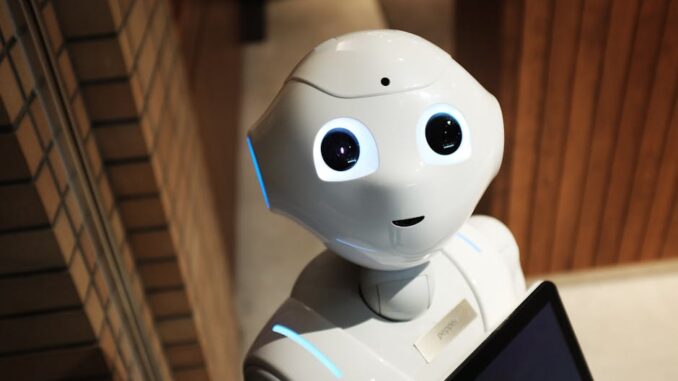
Summary
This article explores the groundbreaking advancements in AI for lung cancer detection, surpassing human capabilities in accuracy and speed. From analyzing CT scans to identifying biomarkers, AI is revolutionizing early diagnosis and treatment, offering hope for improved patient outcomes. The implications of AI extend beyond just detection; it has the potential to transform lung cancer screening and risk assessment, paving the way for personalized and proactive healthcare.
Healthcare data growth can be overwhelming scale effortlessly with TrueNAS by Esdebe.
Main Story
Okay, let’s talk about lung cancer. It’s still a huge problem, unfortunately, taking more lives than any other cancer worldwide. Early detection? That’s absolutely key for better survival rates, but the old ways just aren’t cutting it sometimes.
That’s where artificial intelligence, or AI, comes into play. It’s like something out of a sci-fi movie, but it’s real and it’s changing the game in healthcare, especially in the fight against lung cancer. And you know what? Some of the recent AI breakthroughs are just mind-blowing. They’re showing us that AI can actually detect lung cancer earlier and with more accuracy than ever before – sometimes even outperforming seasoned radiologists, believe it or not!
Specifically, think about how AI can look at CT scans. These super smart algorithms can pick up on the tiny little things, those subtle nodules and patterns that might just be missed by the human eye. It’s amazing! One study, for instance, showed that AI could spot up to 5% more cancer cases while also cutting down on false positives by a whopping 11%. Now, that improved accuracy is huge! False positives, I mean, those can cause a lot of unnecessary anxiety, not to mention invasive procedures and extra healthcare costs. Plus, AI can chew through huge amounts of data, faster than any human. This can really speed up lung cancer screening, especially in areas where you don’t have a lot of specialists around.
But that’s not all! AI isn’t just about scans. Researchers have also created AI-driven blood tests that can find DNA fragments associated with lung cancer, offering a less invasive way to possibly detect it earlier. They’re even working on breath tests! Yes, breath tests that can detect specific biomarkers that are a sign of lung cancer. It’s incredible, really – it’s like adding more tools to our detection toolbox!
Also, think about this: AI isn’t just about detecting cancer after it’s there; it can also help predict who’s at high risk. AI algorithms can analyze someone’s medical history, lifestyle, even genetic information. Then it can predict their chances of getting lung cancer. It’s about really personalizing the screening process. You know, focusing resources on the folks who really need it. This proactive approach is, honestly, a big shift in how we think about healthcare – moving from treatment to prevention.
That said, let’s be real, AI in healthcare is still very new. We still need a lot more research and clinical trials to make sure these AI-powered tools are safe and effective, that’s just obvious. And we can’t forget about the ethical stuff like data privacy and potential bias in the algorithms, that really needs to be addressed carefully as AI gets integrated more into healthcare.
But, and it’s a big but, the potential here is undeniable. AI can process complex data, pick out subtle patterns, and personalize risk assessments. It offers some seriously awesome opportunities to improve how we treat patients. As AI tech continues to develop, it’s on track to become an essential part of the fight against lung cancer. That, in turn, means earlier diagnosis, better treatments, and ultimately, more lives saved. The future of lung cancer care? It’s definitely linked to the advances in AI, and honestly, it’s looking really bright for both patients and healthcare professionals.


AI sniffing out cancer via breath tests? So, you’re saying we’re moving to a world where our exhalations have more secrets than we do? Pass the mouthwash…and maybe a lung scan.
That’s a great point! The breath test aspect is certainly a fascinating area of development. Imagine how much easier and more accessible cancer screening could become with this non-invasive method! It’s definitely pushing the boundaries of early detection.
Editor: MedTechNews.Uk
Thank you to our Sponsor Esdebe – https://esdebe.com
So, personalized risk assessment based on *my* genetic info? Suddenly, my family history feels like it’s going to be used for targeted advertising…or worse, targeted healthcare!
That’s a valid concern, and it highlights an important conversation around data privacy. The potential for personalized risk assessment is exciting, but we need robust safeguards to ensure ethical use of sensitive information and prevent misuse. The balance is crucial for public trust in AI-driven healthcare.
Editor: MedTechNews.Uk
Thank you to our Sponsor Esdebe – https://esdebe.com
So, AI is better than radiologists, huh? Guess it’s time to trade in my stethoscope for a computer science degree.
That’s a fun take on the situation! It’s not so much about replacing radiologists, but rather giving them super powerful tools to enhance their work. Think of AI as a really sharp assistant that helps them spot things they might not have otherwise, allowing them to focus on the big picture and patient care.
Editor: MedTechNews.Uk
Thank you to our Sponsor Esdebe – https://esdebe.com
So, AI can predict my lung cancer risk based on my lifestyle, huh? Does that mean my daily coffee habit and Netflix binges are now part of a complex algorithm, judging my life choices?